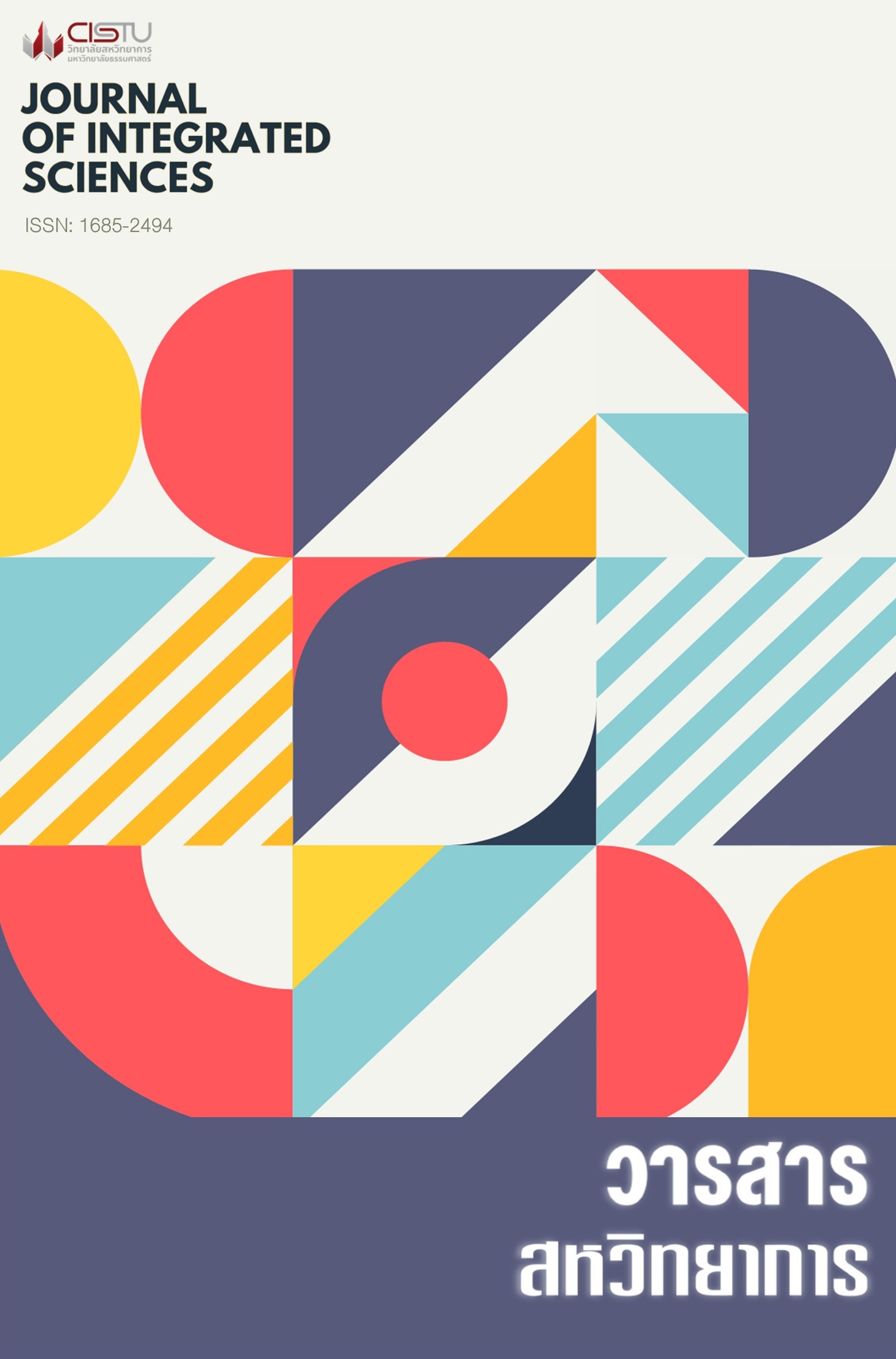โปเกมอนโก: แรงงานดิจิทัล ความเป็นเทรนเนอร์ และการแสวงหาผลประโยชน์จากแรงงานในการเล่น
คำสำคัญ:
เกม, แรงงานดิจิทัล, ปัญญาประดิษฐ์, แรงงานจากการเล่นบทคัดย่อ
บทความนี้ต้องการกล่าวถึงเกมโปเกมอนโกในฐานะที่เป็นส่วนหนึ่งของ ธุรกิจดิจิทัล (digital economy) ที่กำหนดและสร้างรูปแบบทางวัฒนธรรมแบบหนึ่งขึ้นมา
โปเกมอนโกเป็นตัวอย่างของเกมที่สร้างความเข้าใจแบบใหม่เกี่ยวกับการ ศึกษาเกมและธุรกิจดิจิทัล ผู้ศึกษานำแนวคิดวิทยาศาสตร์และเทคโนโลยีศึกษา (science and technology studies) และแรงงานดิจิทัล (digital labor) มาอธิบายเกมดังกล่าว โดยเฉพาะประเด็นเรื่องปัญญาประดิษฐ์ (AI) ว่าเข้ามามีบทบาทสำคัญในการสร้างวัฒนธรรมของผู้คนที่ประสานตัวเองเข้ากับเครื่องกล หรือที่เรียกว่าไซบอร์ก (cyborg) อย่างไร
ในอีกด้านหนึ่งของเกมโปเกมอนโก ผู้ศึกษาพิจารณาเกมดังกล่าวว่า มีนัยแฝงด้านธุรกิจ โดยผู้เล่นกลายเป็นแรงงาน (play-bour) ให้กับบริษัทธุรกิจ ด้านเทคโนโลยีสารสนเทศ
เอกสารอ้างอิง
ทีมข่าวต่างประเทศโพสต์ทูเดย์. (2559, 14 สิงหาคม), บริษัทผู้พัฒนา “โปเกมอน โก” สร้างรายได้จากเกมวันละเกือบ 350 ล้าน. โพสต์ทูเดย์, สิบค้น เมื่อ 21 มิถุนายน 2560, จาก https://www.posttoday.com/economy/ news/448548
รวิพล ลี้มิ่งสวัสดิ์. (2561). จากการผลิตและการบริโภค สู่การผลิตในการบริโภค: แง่มุมบางประการว่าด้วยการอุปมาและการขูตรีตในยุคดิจิทัล. วารสารสังคมศาสตร์ มหาวิทยาลัย นเรศวร, 14(1), 79-96.
เออาร์นิวส์. (2561). Niantic บริษัทผู้สร้าง Pokémon GO ซื้อบริษัทสตาร์ทอัพ อย่าง Escher Reality, สิบค้นเมื่อ 23 สิงหาคม 2561, จาก https:// www.ar.co.th/news content/en/787
ไอที 24 ชั่วโมง. (2559ก), เบื้องหลังเทคโนโลยีภายในเกม Pokemon GO!. สิบค้น เมื่อ 4 กุมภาพันธ์ 2560, จาก https://www.it24hrs.com/2016/ pokemon-go-technology-pokemon-go/
ไอที 24 ชั่วโมง. (2559%). รู้จักบริษัท Niantic จากทีมย่อยของ Google ก้าวสู่ความโด่งดังจาก Pokemon GO! สืบค้นเมื่อ 22 ธันวาคม 2560, จาก https://www.it24hrs.com/2016/about-niantic-pokemon-go-google-ingress/
pokemongotrainerthai. (2561). Pokemon GO กวาดรายได้ 890 ล้านเหรียญ ในปี 2017. สืบค้นเมื่อ 18 มกราคม 2561, จาก https://pokemontrainer. in.th/pokemon-go/454-pokemon-go-earns-890m-2017.html
Brighton, H., & Selina, H. (2013). Introducing artificial intelligence. London: Icon Books.
Casilli, A. A. (2017). Digital labor studies go global: Toward a digital decolonial turn. International Journal of Communication, 11(1), 3934-3954.
Castronova, E. (2005). Synthetic worlds: The business and culture of online games. Chicago: University of Chicago Press.
Crogan, P. (2011). Gameplay mode: War, simulation, and technoculture. Minneapolis: University of Minnesota Press.
Denyer-Simmons, H. (2016). Pokemon Go & placemaking: Positive side effects of using augmented reality applications. Journal of Visual and Media Anthropology, 2(1), 55-63.
Dyer-Witheford, N., & de Peute, G. (2009). Games of empire: Global capitalism and video games. Minneapolis: University of Minnesota Press.
Fuchs, C., & Sevignani, S. (2013). What is digital labour? what is digital work? what's their difference? and why do these questions matter for understanding social media? tripleC, 11(2), 237-293.
Fuchs, C. (2014). Digital labour and Karl Marx. New York: Routledge.
Hamayon, R. (2016). Why we play: An anthropological study [Jouer: Une Étude Anthropologique) (Damien Simon, tran.). Chicago: University of Chicago Press. (original version published 2012).
Haraway, D. (1991). A cyborg manifesto: science, technology, and socialist-feminism in the late twentieth century. In Simians, cyborgs, and women: The reinvention of nature (pp. 149-181). New York: Routledge
International Labour Organization. (2021). World employment and social outlook 2021: The role of digital labour platforms in transforming the world of work. Geneva: ILO.
Jin, D. Y. (2015). Critical analysis of user commodities as free labour in social networking sites: A case study of Cyworld. Continuum, 29(6), 938-950.
Kerr, A. (2006). The business and culture of digital games: Gamework/ gameplay. California: Sage.
Kücklich, J. (2005). Precarious playbour: Modders and the digital games industry. The Fibreculture Journal, Retrieved December 1, 2019, from https://five.fibreculturejournal.org/fcj-025-precarious- playbour-modders-and-the-digital-games-industry/
Latour, B. (1987). Science in action: How to follow scientists and engineers through society. Cambridge: Harvard University Press.
Lazzarato, M. (1996). 'Immaterial Labor' ['Le cycle de la production immatériel'], (P. Colilli, & E. Emery, trans.). In Radical thought in Italy: A potential politics. Minneapolis and London: University of Minnesota Press. (original version published 1993).
Mirrlees, T. (2016). Pokémon Go's precarious "play-bour": Real work, augmenting the economy. Retrieved December 9, 2019, from http://www.durhamregion. com/opinion-story/6787664-pok-mon-go-s-precarious-play-bour- real-work-augmenting-the-economy/Google Scholar
Mochizuki, T. (2016). In 'Pokémon Go' craze, how much profit does Nintendo capture? Wall Street Journal. Retrieved December 9, 2019, from https://www.wsj.com/articles/pokemon-go-fueled- nintendo-just-keeps-going-1468302369
Research and Markets. (2019). Video game market report: Trends, forecast and competitive analysis. Retrieved December 7, 2019, from https://www.researchandmarkets.com/reports/4772861/video- game-market-report-trends-forecast-and
Ritzer, G. (2008). The McDonaldization of society 5. Los Angeles, Calif.: Pine Forge Press.
Ritzer, G., & Jurgenson, N. (2010). Production, consumption, prosumption: The nature of capitalism in the age of the digital 'prosumer'. Journal of Consumer Culture, 10(1), 13-36.
Steinkuehler, C., Squire, K., and Barab, S. (2012). Games, learning, and society: Learning and meaning in the digital age. Cambridge: Cambridge University Press.
Tegmark, M. (2017). Life 3.0: Being human in the age of artificial intelligence. New York: Alfred A. Knopf.
Terranova, T. (2004). Network culture: Politics for the information age. New York: Pluto Press.
ฟ้าใส แสงสุวรรณ. (12 มกราคม 2560), สัมภาษณ์ส่วนตัว
รักชนก เพิ่มทรัพย์. (22 เมษายน 2560), สัมภาษณ์ส่วนตัว
ดาวน์โหลด
เผยแพร่แล้ว
รูปแบบการอ้างอิง
ฉบับ
ประเภทบทความ
สัญญาอนุญาต
ลิขสิทธิ์ (c) 2020 วารสารสหวิทยาการ

อนุญาตภายใต้เงื่อนไข Creative Commons Attribution-NonCommercial-NoDerivatives 4.0 International License.
บทความทัศนะ ข้อคิดเห็น ภาพที่ปรากฏ ในวารสารเล่มนี้เป็นความคิดเห็นส่วนตัวของผู้เขียน บรรณาธิการและกองบรรณาธิการไม่จำเป็นต้องเห็นพ้องด้วย และไม่ถือเป็นความรับผิดชอบ ลิขสิทธิ์เป็นของผู้เขียนและวิทยาลัยสหวิทยาการ มหาวิทยาลัยธรรมศาสตร์ การตีพิมพ์ชื่อต้องได้รับอนุญาตจากผู้เขียน และวิทยาลัยสหวิทยาการโดยตรง และเป็นลายลักษณ์อักษร






